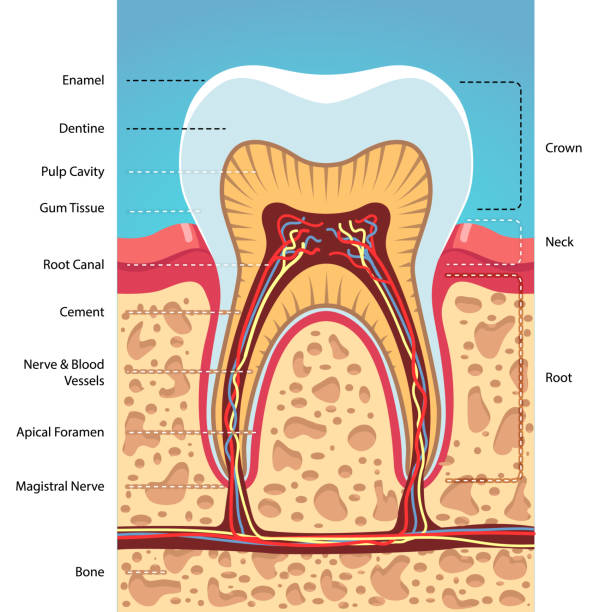Root Canal Infections: Symptoms, Causes, Treatment, and Prevention
Root canal infections are a serious dental issue. They're caused by bacteria that get into the tooth and infect the pulp or nerve tissue inside it. Symptoms can include pain in your teeth, loose teeth, difficulty chewing food on one side of your mouth, bad breath from infected gums around a tooth root site, and pus coming out of a tooth. The good news is that there are treatments for root canal infections that can help you get rid of this problem! In this blog post, Dr. Kryzman from Palisades Dental Centre will talk about what causes them and how to prevent them from happening at all.
What are root canal infections?
Root canal infections occur when the bacteria inside a tooth spread into the root and surrounding bone. As they infect these structures, an abscess (or localized collection of pus) forms and may lead to inflammation in the tissue outside the gums or other symptoms depending on where it is located.
Teeth aren't solid all the way through — they're made up of layers. The hard, outer surface of a tooth is called enamel. The inner layer is called dentin and is a porous, almost sponge-like tissue. At the center of each tooth is a small space that contains soft tissue called pulp.
What are the symptoms of a root canal infection?
The symptoms of a root canal infection depend on the severity and stage of the infection. In some cases, there are no symptoms at all. The following list covers the most possible symptoms:
- Toothache or pain during chewing
- Swollen gums
- Bad taste in your mouth
The symptoms related to a root canal infection often mimic those of other conditions such as tooth abscess, periodontitis or sinusitis. This means that it is easy to misdiagnose the condition if you do not have access to an X-ray, as all these diseases can cause similar symptoms. Contact your dentist immediately.
What causes root canal infections?
Root canal infections are an unfortunate side effect of root-canaled teeth. Root canal treatments are done on teeth that have become infected or damaged by decay. This is because the bacteria in these types of teeth can enter the pulp chamber and cause damage to the roots, nerves, and blood vessels of the tooth.
Although root canal treatments can save your natural teeth, they aren't always successful at preventing infection due to bacteria reentering the treatment site after treatment has been completed. This is because there are often microscopic holes (microtriches) left behind during root canal procedures that allow bacteria access to the inside of your tooth that wouldn't be possible otherwise.
How are root canal infections treated?
Root canal infections are treated by removing the infected pulp and disinfecting the inside of the tooth. This is done in a process called root canal treatment, which removes all diseased tissue and replaces it with inert materials. The healthy parts of your teeth (the crowns) will remain after this procedure.
How to Prevent Root Canal Infection?
The best way to prevent root canal infections is good oral hygiene. This includes
- Brushing your teeth two times a day for two minutes each time.
- Flossing once a day.
- Using an antimicrobial mouth rinse twice a day.
- Visit your dentist regularly for checkups and cleanings.
If your tooth pain doesn't get better with treatment or if you experience any symptoms of infection following root canal treatment, please contact your dentist.
Root canal infections can be caused by microorganisms such as bacteria, fungi and viruses. The infection is the result of a bacterial invasion into the tooth's nerve tissue that becomes chronic if left untreated. Those with compromised immune systems are most at risk for an acute or recurrent root canal infection. If you’ve been considering getting Root Canal Treatment in Dumont NJ, consider Dr. Kryzman's Palisades Dental Centre. They are one of the most experienced dentists in town!



Comments
Post a Comment